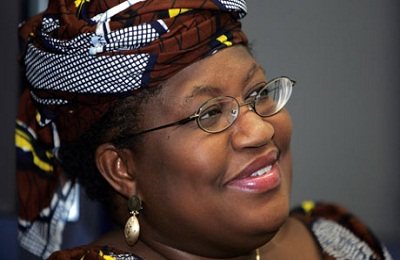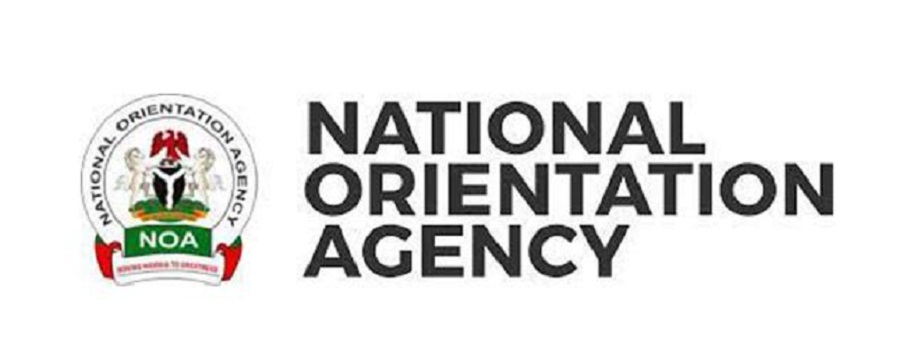News
Nigeria Missing in Africa’s Top 5 Performing Economies of 2013

That Africa is set to become the world’s economic engine in the next 10 years or during the 21st century is no doubt a well-known fact.
Unfortunately, Nigeria is not one of the top five. Countries like Malawi, Mozambique, Angola, Ethiopia and Zambia outperform her,.
But that almost all the 54 countries on the continent compete fiercely to be in the top position of the 5 fastest-growing economies in Africa is little known, according to Venture Africa.
Venture Africa said, however, it becomes evident when the names of the top performing economies on the continent changes each year.
According to auditing firm Ernst & Young’s 2013 Competitive Survey, the projected GDP growth from 2012-2017 Malawi tops the list with an expected GDP growth during this period of 7 percent and followed closely by Mozambique at 6.8 percent economic growth.
In the third place is Angola with the projected GDP growth of 6.5 percent in the next six years. Ethiopia’s GDP growth is expected to be 6.3 percent while Zambia is expected to grow its GDP by 6.2 percent.
Despite the negative impact of global economic crises, the size of the African economy has more than tripled since 2000, according to Ernst & Young. The continent also hold bright prospects, with many countries in Africa set to continue recording high economic growth levels in the future.
The cynics will more often than not opine that most of this economic growth is being driven by natural resources. But that is certainly not the case.
According to the International Business Times website, the number of Africans living in the cities has surged dramatically and it could soon surpass that of India, which is considered to be the leader at this stage.
It is believed that in the next 16 years, half of all Africans will be living in the cities. It is also understood that Africa’s middle class is set to be bigger than that of India.
The market influences of the west, which Africa is increasingly approving, are pushing down inflation and reducing sovereign debt.
Intra-African trade is changing on the continent with Africa boasting five growing trade blocs. In total, Africa has a $2 trillion economy, according to the International Business Times.
Underlisted are the top performing economies in Africa.
Malawi
According to the African Economic Outlook, Malawi’s economic growth in 2013 and next year is forecast to bounce back to 5.5 percent and 6.1 percent respectively.
The state has renewed its commitment to credible macroeconomic policies. Good governance has prompted the International Monetary Fund (IMF) to approve a new Enhanced Credit Facility (ECF) programme for the country. This has led to the reopening of donor financial back-up to Malawi.
Mozambique
Mozambique’s steady ramping up of coal production, the implementation of large infrastructure projects and credit expansion are expected to continue to drive growth to 8.5 percent in 2013 and 8 percent in 2014, according to the African Economic Outlook.
The World Bank says the country’s emerging extractive industry could also provide the means for Mozambique to reach the status of a middle-income country by 2025.
Angola
Angola’s economy bounced back robustly after recording sluggish growth due to oil and financial crises.
The Report forecast growth in Angola to rise to 8.2 percent in 2013 and 7.8 percent in 2014 on the back of oil and gas sector expansion. There is also a public expenditure programme made to inspire economic diversification.
Ethiopia
Ethiopia’s economy saw a ninth successive year of vigorous growth last year estimated at 6.9 percent, the African Economic Outlook states.
The growth was driven by a surging role for services and industry. This motion is set to stay until next year.
Zambia
Growth in real GDP moved faster to 7.3 percent last year from 6.8 percent posted in 2011. In the next 24 months, economic growth in Zambia is forecast to stay strong.
In 2012, the economy continued to be strong driven by expansion in agriculture, construction, manufacturing, transport and finance. According to the African Economic Outlook, prospects for the future of the country remain bright.
News
NOA Uncovers Fraud by Banks, Universities in Students Loan Scheme

National Orientation Agency (NOA) has revealed that an investigation by its Community Orientation and Mobilisation Officers (COMO) uncovered unethical practices by some tertiary institutions, in collaboration with certain banks, that are depriving students of their rightful access to the Federal Government Student Loan Fund.

Paul Odenyi, deputy director of Communications and Media, in a statement Sunday, disclosed that several universities and financial institutions have been found engaging in fraudulent activities that prevent students from receiving the loans allocated to them.
Mallam Lanre Issa-Onilu, director general, NOA, shared these troubling findings following a high-level meeting with Mr. Akintunde Sawyerr, managing director, Nigeria Education Loan Fund (NELFUND), over the weekend.
According to NOA, preliminary reports led to an urgent intervention from NELFUND after it was discovered that some university officials had deliberately withheld critical details about student loan disbursements.
Further feedback from NOA confirmed that certain institutions, in collusion with banks, have intentionally delayed payments to approved applicants for dubious financial gain.
Additionally, some universities do not acknowledge the disbursements made by NELFUND to students.
Sawyerr confirmed that certain institutions have withheld information about loan payments issued in students’ names while still demanding tuition fees from them.
He warned that NELFUND is ready to take legal action against institutions found guilty of engaging in fraudulent practices.
He stated, “Recent findings by NELFUND have shown that some institutions have received student loan disbursements directly into their accounts yet neglect to inform the affected students or record the payments in their financial records, leading to unnecessary confusion.
“Withholding critical financial information from students is not only unethical but also a breach of the principles on which NELFUND was founded.
“We are prepared to take legal action against any institution engaged in such deceptive practices.”
The investigation revealed that in some instances, universities continued to demand full tuition payments from students, despite having already received the loan funds intended to cover those fees.
According to the NOA, this constitutes a gross violation of student rights and a betrayal of public trust.
Issa-Onilu, therefore, issued a strong warning to the institutions and collaborating financial institutions, demanding an immediate end to these actions.
He also directed all NOA state directorates to intensify feedback collection from students nationwide to aid the Federal Government in identifying and penalising the erring parties.
The NOA emphasised its commitment to transparency, accountability, and ensuring that students benefit fully from the government’s intervention in education financing.
The statement added that the investigation remains ongoing, and further actions are expected in the coming weeks.
General News
Nigeria Records $6.83Bn Balance of Payments Surplus in 2024 Amid Economic Reforms

Central Bank of Nigeria (CBN) has announced a remarkable $6.83 billion balance of payments surplus for 2024, marking a decisive turnaround from deficits of $3.34 billion in 2023 and $3.32 billion in 2022.

This achievement reflects the impact of sweeping macroeconomic reforms, stronger trade dynamics, and renewed investor confidence in the nation’s economic direction.
Speaking at the 36th Enugu International Trade Fair, Acting Director of Corporate Communications, Mrs. Hakama Sidi Ali, highlighted the CBN’s commitment to addressing economic challenges and fostering productivity, particularly for SMEs.
She emphasized the importance of robust financial systems, foreign exchange stability, and collaboration between monetary and fiscal authorities in achieving industrial development and global recognition.
The President of the Enugu Chamber of Commerce, Sir Odeiga Jideonwo, commended the CBN’s efforts but expressed concerns over the recent hike in interest rates, cautioning that it could hinder access to credit for businesses.
This surplus signals a positive trajectory for Nigeria’s economy, benefiting investors, businesses, and citizens alike.
News
Senate Committee Partners with Kuda Bank to Tackle Compliance Crisis as Nigeria Loses ₦3.4 Trillion

Over ₦3.4 trillion in financial infractions were uncovered across federal Ministries, Departments, and Agencies (MDAs) in 2021, according to the Auditor General’s report — a staggering figure that highlights Nigeria’s deepening compliance crisis and the urgent need for stronger oversight in public institutions.

In response, the Senate Committee on Legislative Compliance is hosting a high-level workshop to address the root causes of weak oversight and institutional gaps. The two-day event, with the theme ‘Consolidating Strategies for Strengthening Legislative Compliance by MDAs’, will take place on April 15 and 16, 2025 at NAF Suites, Abuja, bringing together lawmakers, regulators, and over two hundred representatives from federal MDAs.
Kuda Microfinance Bank is co-sponsoring the workshop as part of its commitment to supporting responsible innovation, governance, and regulatory alignment in Nigeria’s financial ecosystem.
Rasaq Kadri, Kuda’s Head of Compliance, will deliver a keynote address on the second day of the event, highlighting the efforts of Nigeria’s fintechs to promote inclusion and financial literacy without compromising on compliance best practices.
“When public funds go unaccounted for, it doesn’t just damage government credibility, it affects the entire financial ecosystem, including fintechs,” said Kadri. “We can’t build trust-driven products in a trust-deficient environment. Every time compliance is treated as a box-ticking exercise, we miss the chance to build something that lasts. Fintechs have the tools and perspective to support better governance, but more importantly, we have a responsibility to be part of the solution.”
As a sponsor, Kuda will take the workshop to engage directly with key stakeholders in Nigeria’s regulatory and public service ecosystem.
Plenary sessions will be chaired by the Honourable Attorney General of the Federation, Lateef Fagbemi SAN, and the Honourable Minister of Finance, Wale Edun. Conversations will focus on closing compliance gaps, strengthening institutional transparency, and promoting cross-sector collaboration.
The Senate Committee on Legislative Compliance Workshop is a unique platform for dialogue, knowledge-sharing, and collaborative action.

 E-Business2 days ago
E-Business2 days agoNITDA Warns Against Fake Google Play Store

 News2 days ago
News2 days agoNOA Uncovers Fraud by Banks, Universities in Students Loan Scheme

 General News2 days ago
General News2 days agoLagos Commences Integration of NIN with State Single Social Register

 E-Financial2 days ago
E-Financial2 days agoAfrica Loses $88.6Bn Yearly to Corruption- ECOWAS

 E-Financial2 days ago
E-Financial2 days agoUBA Redefines Banking with Next-Gen PoS Terminals and Revamped MONI App

 E-Financial2 days ago
E-Financial2 days agoNIBSS Heads to Court to Recover N4Bn Lost due to System Glitch

 E-Financial2 days ago
E-Financial2 days agoSEC Bans Unregistered Digital Asset Exchanges, Online Forex Platforms

 General News2 days ago
General News2 days agoNigeria Records $6.83Bn Balance of Payments Surplus in 2024 Amid Economic Reforms

























